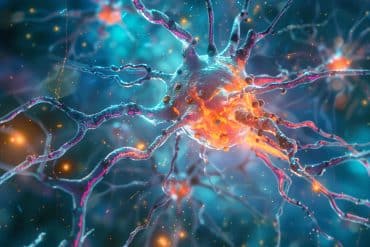Summary: Musical training influences visual working memory, researchers discovered. The study found regions of the brain may share a common component that influences both visual and musical working memory.
Source: Max Planck Institute
“Will my child be a better student if he or she learns to play an instrument?” is a question many parents have asked. But it’s not just parents who wonder whether musical training can improve other cognitive abilities or performance in school.
Now, scientists from the Hochschule für Musik, Theater und Medien in Hanover, Germany; Goldsmiths University of London, UK; Macquarie University of Sydney, Australia; the Max Planck Institute for Empirical Aesthetics (MPIEA) in Frankfurt am Main, Germany, and the University of Cambridge, UK, have taken up this question using a new scientific method.
Findings from their study have just been published in the journal Music Perception.
One crucial component of all cognitive faculties is working memory, that is, the ability to hold information in one’s memory and make use of it without external aids, such as pen and paper.
It is still unclear, however, if working memory has the same function for all brain regions or if it differs from one to the next, i.e., whether the regions and capacities that the brain uses for music, images, language, and mathematics are the same—or different.
In their study, the scientists examined a total of 148 people. By means of six different tests, they compared the research subjects’ musical and visual working memories with their level of musical training.
“Previous studies of the relationship between musical training and general cognitive abilities have tended to ignore musical memory. What we’ve done is to investigate these three factors by using the ‘causal modeling’ approach, a relatively new scientific method that makes it possible to determine causal relationships under specific conditions,” explains senior author Peter Harrison of the MPIEA.
The results show that if musical training influences visual working memory, then it does so via the “detour” of musical working memory. In other words, by way of its primary benefits for musical working memory, musical training could have a positive effect on visual working memory as well.

The study further showed that, conversely, a generally strong working memory may make musical training easier.
The research team’s findings suggest that regions of the brain share a common component that influences both visual and musical working memory. A direct causal link between musical training and general cognitive faculties, however, seems unlikely.
Additional long-term studies, in which individuals with and without musical training are compared in terms of their development of musical and cognitive abilities, might further substantiate these results.
About this music and cognition research news
Author: Klaus Frieler
Source: Max Planck Institute
Contact: Klaus Frieler – Max Planck Institute
Image: The image is in the public domain
Original Research: Closed access.
“The Associations Between Music Training, Musical Working Memory, and Visuospatial Working Memory: An Opportunity for Causal Modeling” by Silas, S., Müllensiefen, D., Gelding, R., Frieler, K. & Harrison, P.M.C. Music Perception
Abstract
The Associations Between Music Training, Musical Working Memory, and Visuospatial Working Memory: An Opportunity for Causal Modeling
Prior research studying the relationship between music training (MT) and more general cognitive faculties, such as visuospatial working memory (VSWM), often fails to include tests of musical memory.
This may result in causal pathways between MT and other such variables being misrepresented, potentially explaining certain ambiguous findings in the literature concerning the relationship between MT and executive functions.
Here we address this problem using latent variable modeling and causal modeling to study a triplet of variables related to working memory: MT, musical working memory (MWM), and VSWM.
The triplet framing allows for the potential application of d-separation (similar to mediation analysis) and V-structure search, which is particularly useful since, in the absence of expensive randomized control trials, it can test causal hypotheses using cross-sectional data. We collected data from 148 participants using a battery of MWM and VSWM tasks as well as a MT questionnaire.
Our results suggest: 1) VSWM and MT are unrelated, conditional on MWM; and 2) by implication, there is no far transfer between MT and VSWM without near transfer. However, the data are unable to distinguish an unambiguous causal structure.
We conclude by discussing the possibility of extending these models to incorporate more complex or cyclic effects.






